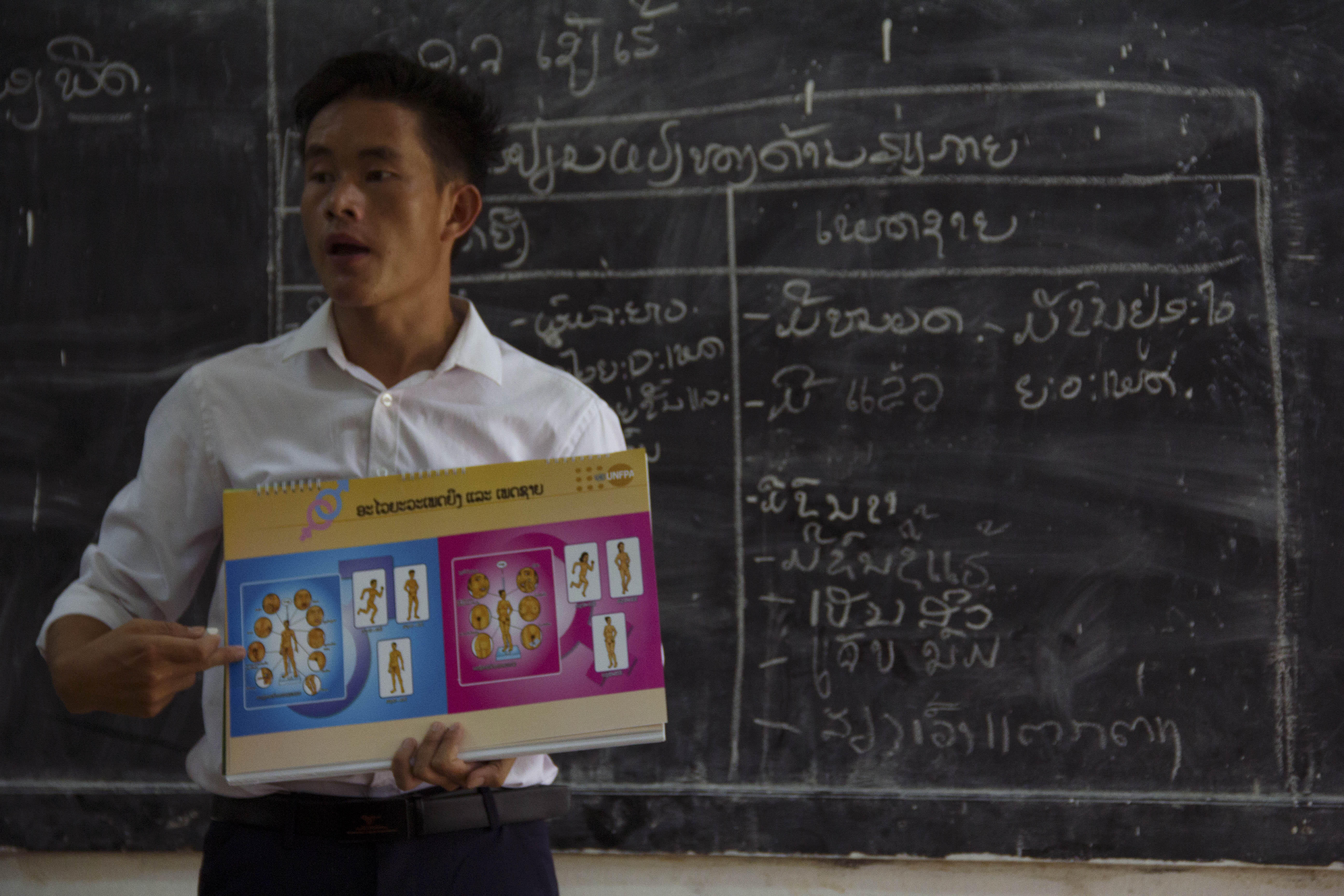Comprehensive sexuality education (CSE) plays a central role in the preparation of young people for a safe, productive, fulfilling and empowering life, live freely from HIV/AIDS, sexually transmitted infections (STIs), unintended pregnancies, gender-based violence (GBV) and gender inequality. Despite clear and compelling evidence for the benefits of high-quality, curriculum-based CSE, it is often being criticized and misunderstood.
Today we will take you through 6 facts about CSE that will make you understand and be more comfortable about this topic.
- CSE isn’t ONLY about sex
When we talk about Comprehensive sexuality education (CSE), people are reminded of teachers talked about puberty, safe sex, etc. and showing those uncomfortable “naked body” pictures. If it isn’t only about sex-education, what is CSE then?
According to UN’s global guidance, CSE is a curriculum-based process of teaching and learning about the cognitive, emotional, physical and social aspects of sexuality. In Laos, Ministry of Education and Sports has recently approved the revision of CSE teacher’s manual for lower and upper secondary education and Technical Vocational Education Training (TVET) which included key concepts: relationships, values attitudes and skills, culture society and human rights (including gender) as well as concepts on Sexual and Reproductive Health as well as safe use of ICT.
- CSE doesn’t encourage teens to have sex early
Good and comprehensive sexuality education doesn’t encourage teens to have sex early, it helps them delay their first sexual experience, and decrease the likelihood of HIV infection or early pregnancy. It builds communication and negotiation skills and empowers young people to decide when and with whom to have sex, or to say if they don’t want to.
Evidence has also shown that even those that have already had sex, the education approach helps reduce risky sexual behaviour such as the frequency or sexual intercourse, the number of partners and contraceptives used.
- Learning CSE gives more than what can be found online
Curiosity about sex and sexuality is natural step, especially when children become adolescents. Young people often use online media (including social media) because they are able to quickly, conveniently and confidentially access information. However, online media doesn’t necessarily provide age-appropriate, evidence-based facts and can in fact provide biased and distorted messages. It is difficult for young people to distinguish between accurate and inaccurate information, therefore, it is important for CSE to include the safe use of ICT in the module.
Families are an important source of information, but schools also play an essential role in delivering structured education that focuses on objective scientific information, and the development of skills. It is best delivered by trained teachers, in school when children are also with their peers.
- Primary school students should know about CSE
Primary school students also need information that is appropriate for their age. CSE is based on the principle of age - and developmental-appropriateness, reflected in the grouping of learning. CSE lays the foundations for healthy childhood by providing children with a safe environment to learn the correct names for parts of the body; understand principles and facts of human reproduction; explore family and interpersonal relationships; learn about safety, prevention and reporting of sexual abuse etc.
CSE also provides children with the opportunity to develop confidence by learning about their emotions, self-management (e.g. of hygiene, emotions, behaviour), social awareness (e.g. empathy), relationship skills (e.g. positive relationships, dealing with conflicts) and responsible decision-making (e.g. constructive and ethical choices). These topics are introduced gradually, in line with the age and evolving capacities of the child.
- CSE is culturally appropriate
In fact, Comprehensive sexuality education is adapted to the culture and country’s context, UNFPA had been working closely with Ministry of Education and Sports on the curriculum revision; numbers of consultations were organized with full participation of experts and teachers; to identify learning objectives, activities and contents, words and key messages are adapted appropriately to the learners’ culture.
- CSE isn’t only between boy and girl
Teaching these topics supports inclusion and respect, prevents violence, and encourages the learning and overall health and well-being of all students—especially those who may identify as lesbian, gay, bisexual and transgender (LGBT)— by ensuring that all students are deserving of dignity, respect, and inclusion.
The first ever survey on LGBT in Laos by Proud To Be Us has shown that students who identify as LGBT continue to experience discrimination, bullying, sexual assault and other traumas. These student populations also experience higher rates of depression, pregnancy, suicidal ideation, and anxiety. This leads many of these young people to drop out or be chronically absent.
In August 2019, 110 teachers from lower and upper secondary schools in Bokeo province were trained by the master trainers of the Ministry of Education and Sports on the revised of CSE teacher’s manual aligning with the national subjects such as biology, population studies and ICT. By the end of 2019, more than 25,000 students in Bokeo which is one of the target provinces will be reached by CSE programme through the trained teachers and scale up nationwide in the future.
Still have questions concerning your sexual and reproductive health, unintended pregnancy, contraception, STIs and HIV/AIDs? Reach out to Vientiane Youth Centre for free counselling, 1361 for girls and 137 for boys.
To learn more about CSE, find us on Facebook: UNFPA Laos and website: lao.unfpa.org
UNFPA works to help every young person realise their full potential. We do this by reducing maternal deaths, ensuring every pregnancy is by choice not by chance, addressing gender-based violence and harmful practices. #Noi2030 #ICPD25 #UNFPA50


